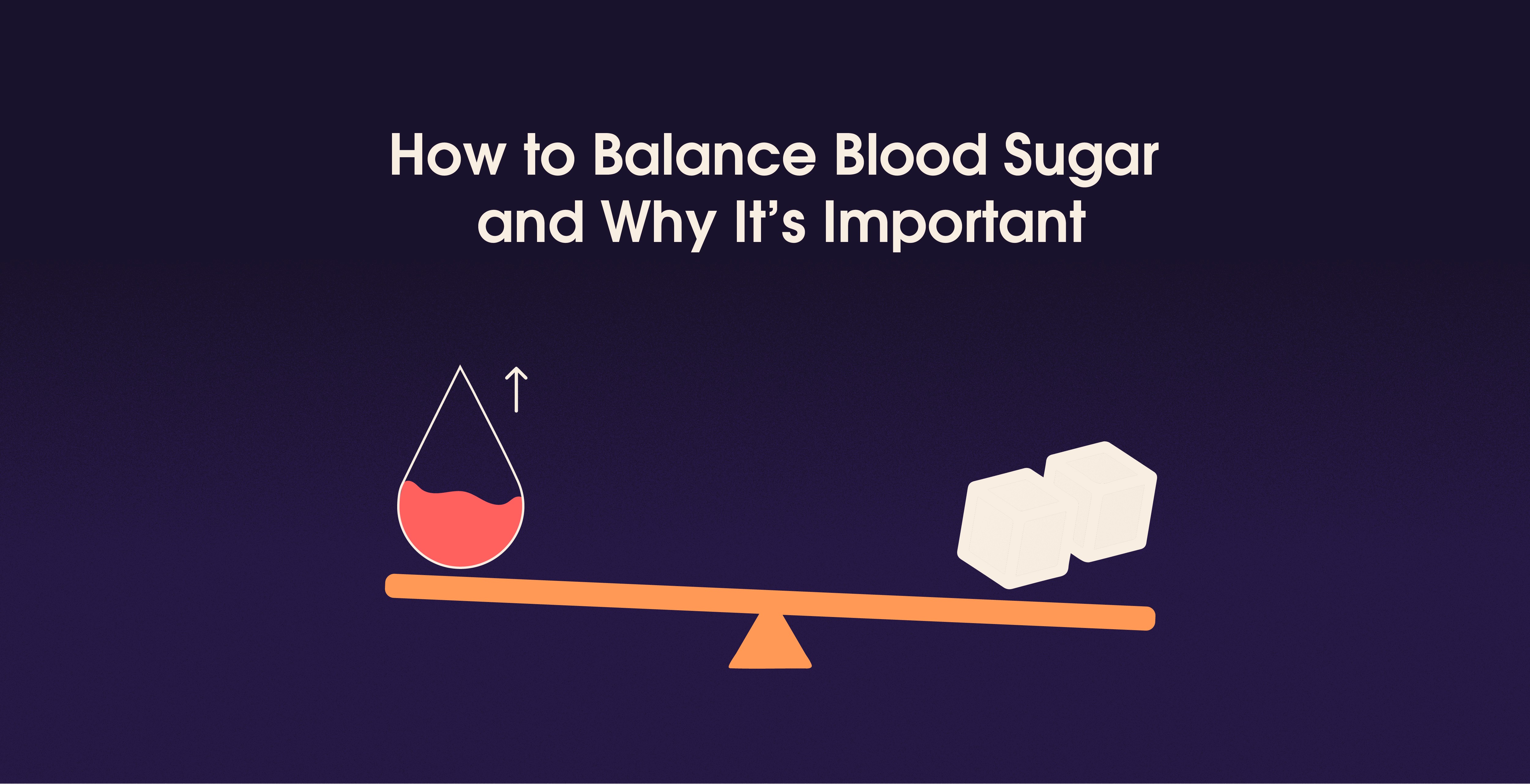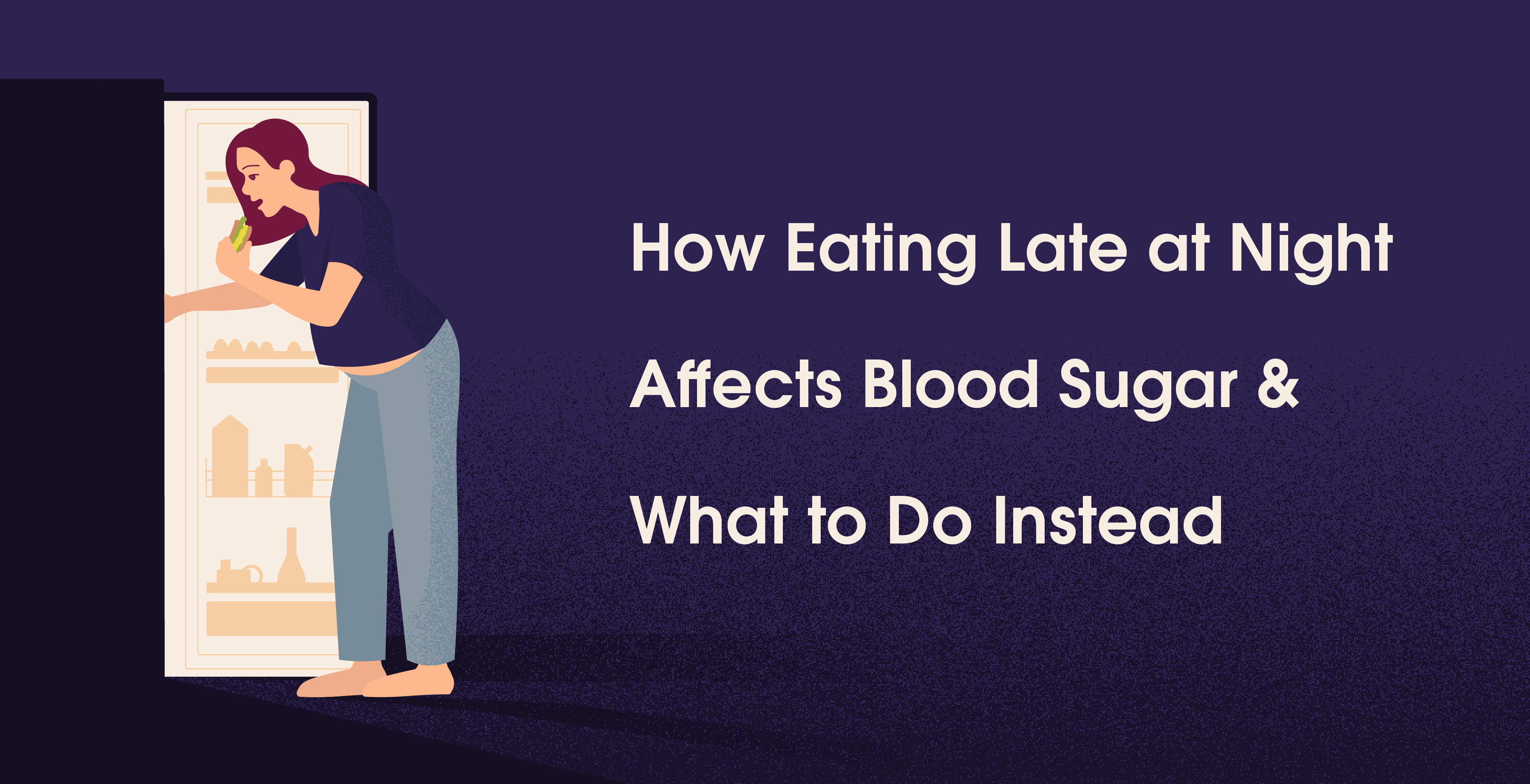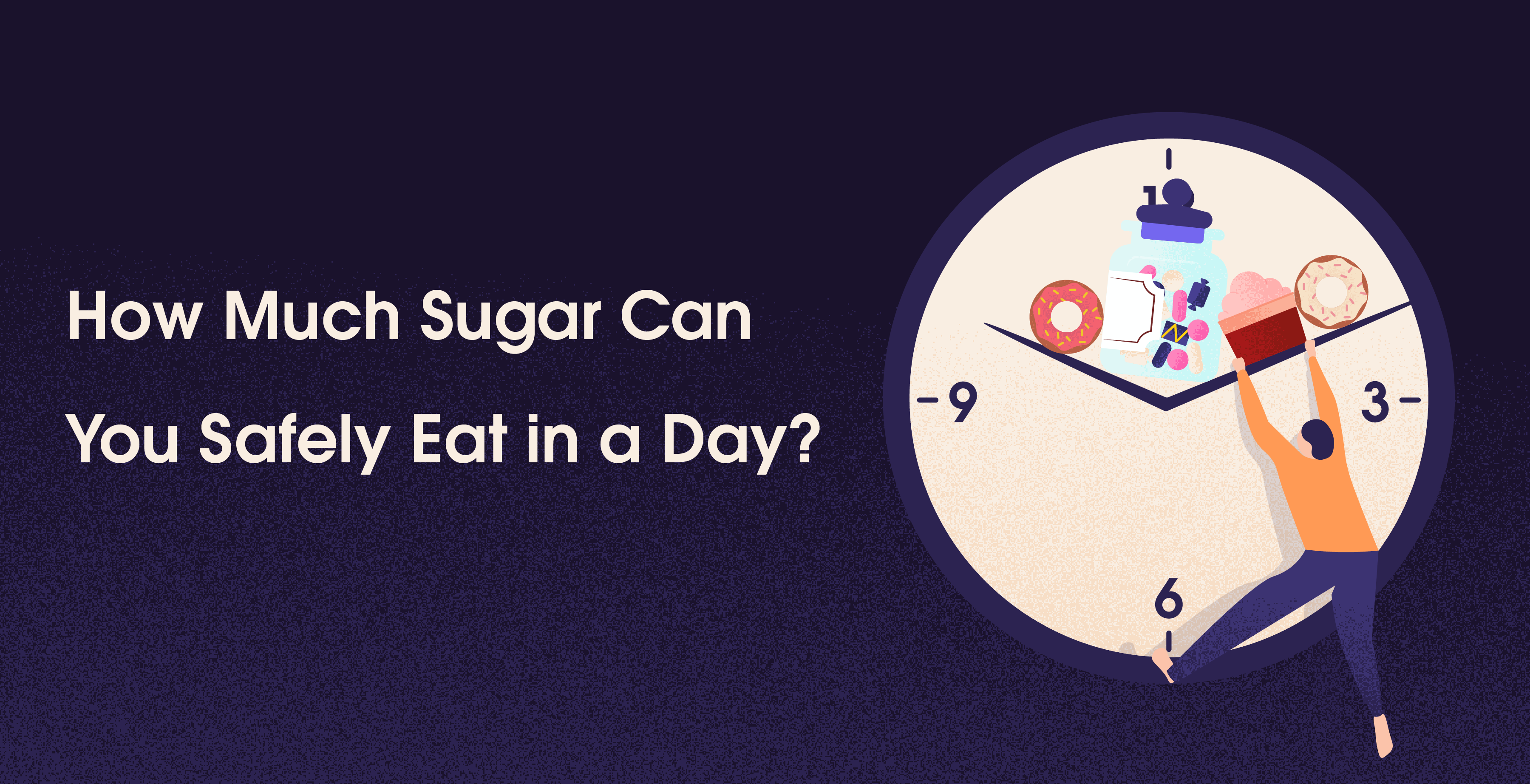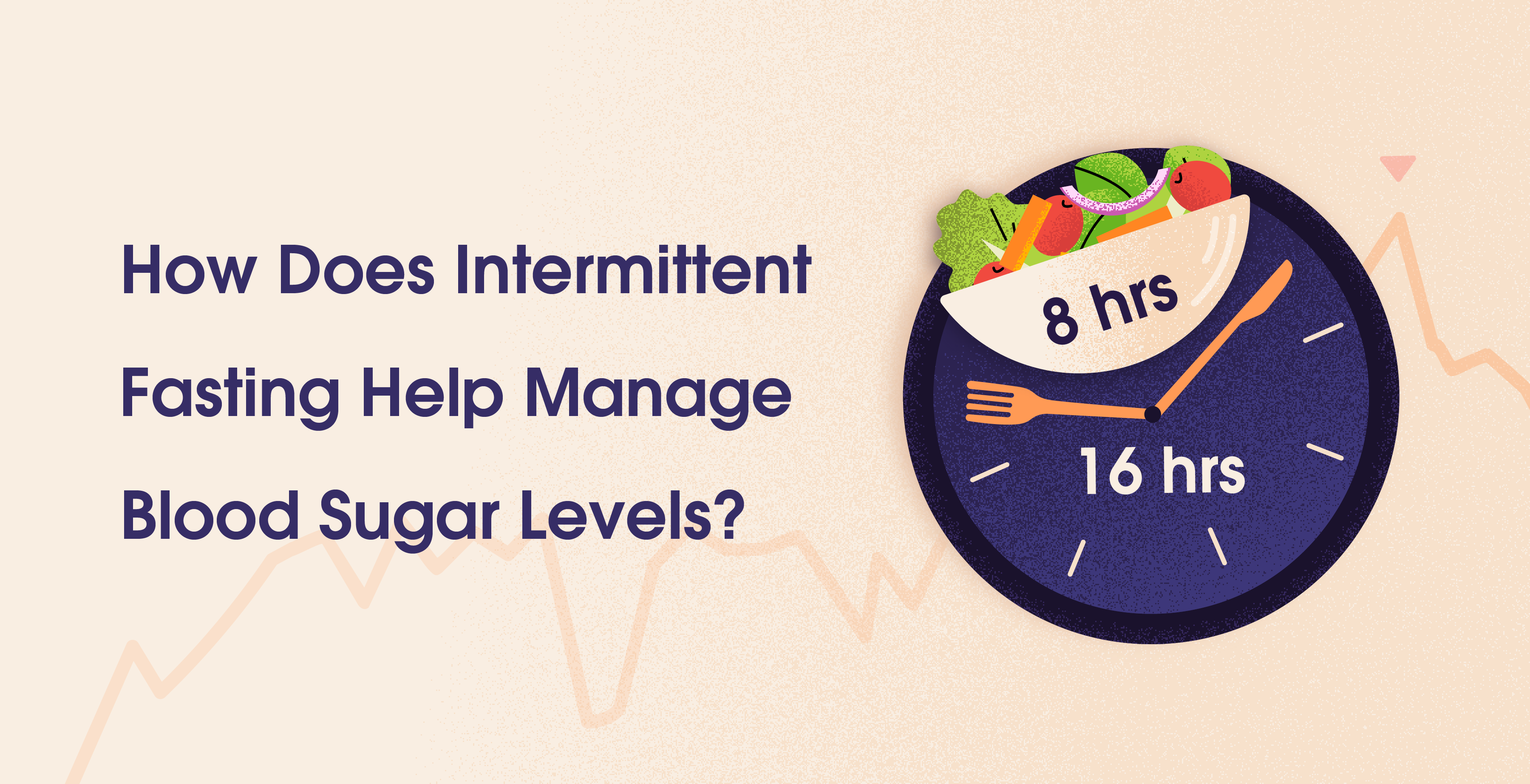How to Balance Blood Sugar and Why It’s Important
Oct 25, 2024
Sayfali Rawlani



Table Of Contents
Keeping your blood sugar balanced is a big deal when it comes to feeling your best. Whether you’re trying to prevent those energy crashes or you have a condition like prediabetes or diabetes, taking care of your blood sugar can really make a difference in your day-to-day life.
Highlights
Blood sugar is the sugar in your blood that gives you energy from the food you eat.
Keeping it balanced helps your body work well and prevents health problems.
High blood sugar over time can damage organs, nerves, and blood vessels.
Low blood sugar can make you feel dizzy or faint.
Eat regular meals with a mix of carbs, protein, and healthy fats.
Choose whole grains like brown rice and oats instead of sugary foods.
Eat more fiber-rich foods like fruits, veggies, and beans.
Protein helps keep blood sugar steady, so include foods like eggs, chicken, or tofu.
Exercise regularly to help your body use sugar better.
Drink plenty of water to stay hydrated and keep blood sugar balanced.
Avoid sugary drinks like soda and energy drinks.
Manage stress through relaxation techniques to prevent blood sugar spikes.
Get enough sleep to help your body control blood sugar.
If you have diabetes, check your blood sugar levels regularly to stay on top of changes.
Balanced blood sugar helps you feel more energized, improves mood, and keeps cravings in check.
It also reduces the risk of serious health issues like diabetes and heart problems.
Why Blood Sugar Matters
Blood sugar (also called blood glucose) is the sugar that runs through your bloodstream. It comes from the food you eat and gives you energy. Your body uses insulin, a hormone, to move that sugar into your cells where it’s needed. When everything is working well, your blood sugar stays in a healthy range, and you feel good.
But if your blood sugar goes too high or too low, it can mess with how you feel and even lead to serious health issues over time. If your blood sugar stays high for too long, it can cause issues with your organs, nerves, and blood vessels. On the flip side, if it drops too low, you might feel dizzy, tired, or even faint. This is why balancing your blood sugar is so important—it keeps your body running smoothly.
Simple Ways to Balance Your Blood Sugar
Eat Regularly
Skipping meals or eating at random times can cause your blood sugar to swing up and down. Try to eat three balanced meals each day and, if needed, add in a healthy snack or two. Make sure your meals include a mix of carbs, protein, and healthy fats. This combo helps your body absorb sugar more slowly and steadily.
Go for Whole Grains Over Sugary Stuff
White bread, sugary snacks, and other simple carbs can make your blood sugar rise fast and then drop. Choose whole grains, like brown rice, oats, and veggies instead. These give your body a slower, more steady release of sugar, helping keep your levels balanced.
Eat More Fiber
Fiber is a natural way to slow down how fast your body absorbs sugar. Foods like fruits, vegetables, beans, and whole grains are packed with fiber. The more fiber you eat, the easier it is to keep your blood sugar from spiking after meals.
Don’t Forget Protein
Protein is a blood sugar stabilizer because it doesn’t make your levels jump around. It also helps balance out the carbs you eat. Include foods like eggs, chicken, fish, tofu, or beans in your meals to keep your blood sugar in check.
Stay Active
Regular exercise can lower your blood sugar because your muscles use the sugar for energy. Plus, being active helps your body respond better to insulin. Even a 30-minute walk, bike ride, or swim can make a big difference.
Drink Water
Staying hydrated is key to balanced blood sugar. When you’re dehydrated, the sugar in your blood becomes more concentrated. Drinking plenty of water throughout the day helps keep your levels steady.
Cut Back on Sugary Drinks
Sodas, energy drinks, and even fruit juices can cause a big spike in your blood sugar. Instead, reach for water, unsweetened tea, or even a piece of fruit, which gives you a bit of natural sweetness along with fiber.
Manage Your Stress
Stress can cause your blood sugar to go up because of hormones released when you’re feeling overwhelmed. Finding ways to relax, like deep breathing, yoga, or just taking time for yourself, can help keep stress levels down—and your blood sugar, too.
Get Enough Sleep
Not getting enough sleep can mess with how your body handles blood sugar. Aim for at least 7-9 hours of good sleep every night so your body can regulate your blood sugar properly.
Keep Track of Your Levels
If you have diabetes or are at risk, checking your blood sugar regularly can help you spot any changes and understand how different foods or activities affect your levels. Knowing what’s going on with your blood sugar can help you avoid big swings.
Why It’s Worth Balancing Your Blood Sugar
When your blood sugar is steady, life feels better. Here’s what happens when you keep it balanced:
You Feel More Energized: No more sudden tiredness or feeling sluggish during the day.
Your Mood Improves: Blood sugar swings can leave you feeling irritable or anxious. Balanced levels keep your emotions in check.
Better Focus: Stable blood sugar means better concentration and mental clarity.
Easier Weight Control: You’ll avoid cravings for sugary foods, which helps with managing weight.
Lower Risk of Health Problems: Keeping your blood sugar balanced lowers the chances of long-term issues like type 2 diabetes, heart problems, and nerve damage.
Final Thoughts
Balancing your blood sugar doesn’t have to be complicated. With small, everyday changes—like eating regular meals, staying active, and drinking water—you can keep your blood sugar steady and feel great. It’s all about making choices that help your body stay in balance, so you can enjoy better energy, focus, and health.
Frequently Asked Questions
What is blood sugar, and why is it important?
Blood sugar (or blood glucose) is the sugar found in your blood, which comes from the food you eat. It gives your body energy. Keeping your blood sugar balanced is important because if it gets too high or too low, it can lead to health problems like fatigue, dizziness, or long-term issues such as diabetes.
What causes blood sugar levels to rise?
Blood sugar levels can rise when you eat foods high in sugar or simple carbohydrates, like sweets, white bread, or sugary drinks. Stress and lack of exercise can also raise your blood sugar levels. In some cases, certain health conditions like diabetes can make it harder to control blood sugar.
How can I lower my blood sugar naturally?
You can lower your blood sugar naturally by:
Eating balanced meals with fiber, protein, and healthy fats
Choosing whole grains over processed carbs
Drinking plenty of water
Exercising regularly (like walking or cycling)
Managing stress and getting enough sleep
How does exercise affect blood sugar levels?
Exercise helps lower blood sugar by using it for energy. When you exercise, your muscles use glucose (sugar) from your bloodstream, which helps reduce blood sugar levels. Regular physical activity also makes your body more sensitive to insulin, helping it regulate blood sugar more effectively.
Can I balance my blood sugar without medication?
Yes, in many cases, you can balance blood sugar through lifestyle changes like eating a healthy diet, exercising, staying hydrated, managing stress, and getting enough sleep. However, if you have diabetes or other health conditions, you may still need medication, and it’s best to consult your doctor.
What should I eat to keep my blood sugar steady?
To keep your blood sugar steady, eat a balanced diet that includes:
Whole grains (like brown rice or oats)
Fiber-rich foods (like fruits, veggies, and beans)
Lean proteins (like chicken, fish, eggs, or tofu)
Healthy fats (like nuts, seeds, or avocado) Avoid sugary snacks and drinks that can cause blood sugar spikes.
How can I tell if my blood sugar is too high or too low?
Signs of high blood sugar (hyperglycemia) include thirst, tiredness, frequent urination, and blurred vision.
Signs of low blood sugar (hypoglycemia) include shakiness, sweating, confusion, dizziness, and feeling weak. If you experience these symptoms often, it’s a good idea to talk to a healthcare provider.
Is balancing blood sugar only important for people with diabetes?
No, balancing blood sugar is important for everyone! While people with diabetes need to pay extra attention to it, anyone can benefit from keeping their blood sugar stable. It helps with energy levels, mood, focus, and overall health.
Can stress affect blood sugar levels?
Yes, stress can raise blood sugar levels because it triggers the release of hormones like cortisol, which increases blood sugar. Managing stress through relaxation techniques, exercise, or meditation can help keep blood sugar levels balanced.
How often should I check my blood sugar levels?
If you have diabetes or are at risk for it, your doctor may recommend checking your blood sugar regularly, such as before or after meals. If you don’t have diabetes but want to monitor your health, it’s not usually necessary unless you have symptoms or a family history of blood sugar issues. Always follow your healthcare provider's advice on how often to check.
References
Keeping your blood sugar balanced is a big deal when it comes to feeling your best. Whether you’re trying to prevent those energy crashes or you have a condition like prediabetes or diabetes, taking care of your blood sugar can really make a difference in your day-to-day life.
Highlights
Blood sugar is the sugar in your blood that gives you energy from the food you eat.
Keeping it balanced helps your body work well and prevents health problems.
High blood sugar over time can damage organs, nerves, and blood vessels.
Low blood sugar can make you feel dizzy or faint.
Eat regular meals with a mix of carbs, protein, and healthy fats.
Choose whole grains like brown rice and oats instead of sugary foods.
Eat more fiber-rich foods like fruits, veggies, and beans.
Protein helps keep blood sugar steady, so include foods like eggs, chicken, or tofu.
Exercise regularly to help your body use sugar better.
Drink plenty of water to stay hydrated and keep blood sugar balanced.
Avoid sugary drinks like soda and energy drinks.
Manage stress through relaxation techniques to prevent blood sugar spikes.
Get enough sleep to help your body control blood sugar.
If you have diabetes, check your blood sugar levels regularly to stay on top of changes.
Balanced blood sugar helps you feel more energized, improves mood, and keeps cravings in check.
It also reduces the risk of serious health issues like diabetes and heart problems.
Why Blood Sugar Matters
Blood sugar (also called blood glucose) is the sugar that runs through your bloodstream. It comes from the food you eat and gives you energy. Your body uses insulin, a hormone, to move that sugar into your cells where it’s needed. When everything is working well, your blood sugar stays in a healthy range, and you feel good.
But if your blood sugar goes too high or too low, it can mess with how you feel and even lead to serious health issues over time. If your blood sugar stays high for too long, it can cause issues with your organs, nerves, and blood vessels. On the flip side, if it drops too low, you might feel dizzy, tired, or even faint. This is why balancing your blood sugar is so important—it keeps your body running smoothly.
Simple Ways to Balance Your Blood Sugar
Eat Regularly
Skipping meals or eating at random times can cause your blood sugar to swing up and down. Try to eat three balanced meals each day and, if needed, add in a healthy snack or two. Make sure your meals include a mix of carbs, protein, and healthy fats. This combo helps your body absorb sugar more slowly and steadily.
Go for Whole Grains Over Sugary Stuff
White bread, sugary snacks, and other simple carbs can make your blood sugar rise fast and then drop. Choose whole grains, like brown rice, oats, and veggies instead. These give your body a slower, more steady release of sugar, helping keep your levels balanced.
Eat More Fiber
Fiber is a natural way to slow down how fast your body absorbs sugar. Foods like fruits, vegetables, beans, and whole grains are packed with fiber. The more fiber you eat, the easier it is to keep your blood sugar from spiking after meals.
Don’t Forget Protein
Protein is a blood sugar stabilizer because it doesn’t make your levels jump around. It also helps balance out the carbs you eat. Include foods like eggs, chicken, fish, tofu, or beans in your meals to keep your blood sugar in check.
Stay Active
Regular exercise can lower your blood sugar because your muscles use the sugar for energy. Plus, being active helps your body respond better to insulin. Even a 30-minute walk, bike ride, or swim can make a big difference.
Drink Water
Staying hydrated is key to balanced blood sugar. When you’re dehydrated, the sugar in your blood becomes more concentrated. Drinking plenty of water throughout the day helps keep your levels steady.
Cut Back on Sugary Drinks
Sodas, energy drinks, and even fruit juices can cause a big spike in your blood sugar. Instead, reach for water, unsweetened tea, or even a piece of fruit, which gives you a bit of natural sweetness along with fiber.
Manage Your Stress
Stress can cause your blood sugar to go up because of hormones released when you’re feeling overwhelmed. Finding ways to relax, like deep breathing, yoga, or just taking time for yourself, can help keep stress levels down—and your blood sugar, too.
Get Enough Sleep
Not getting enough sleep can mess with how your body handles blood sugar. Aim for at least 7-9 hours of good sleep every night so your body can regulate your blood sugar properly.
Keep Track of Your Levels
If you have diabetes or are at risk, checking your blood sugar regularly can help you spot any changes and understand how different foods or activities affect your levels. Knowing what’s going on with your blood sugar can help you avoid big swings.
Why It’s Worth Balancing Your Blood Sugar
When your blood sugar is steady, life feels better. Here’s what happens when you keep it balanced:
You Feel More Energized: No more sudden tiredness or feeling sluggish during the day.
Your Mood Improves: Blood sugar swings can leave you feeling irritable or anxious. Balanced levels keep your emotions in check.
Better Focus: Stable blood sugar means better concentration and mental clarity.
Easier Weight Control: You’ll avoid cravings for sugary foods, which helps with managing weight.
Lower Risk of Health Problems: Keeping your blood sugar balanced lowers the chances of long-term issues like type 2 diabetes, heart problems, and nerve damage.
Final Thoughts
Balancing your blood sugar doesn’t have to be complicated. With small, everyday changes—like eating regular meals, staying active, and drinking water—you can keep your blood sugar steady and feel great. It’s all about making choices that help your body stay in balance, so you can enjoy better energy, focus, and health.
Frequently Asked Questions
What is blood sugar, and why is it important?
Blood sugar (or blood glucose) is the sugar found in your blood, which comes from the food you eat. It gives your body energy. Keeping your blood sugar balanced is important because if it gets too high or too low, it can lead to health problems like fatigue, dizziness, or long-term issues such as diabetes.
What causes blood sugar levels to rise?
Blood sugar levels can rise when you eat foods high in sugar or simple carbohydrates, like sweets, white bread, or sugary drinks. Stress and lack of exercise can also raise your blood sugar levels. In some cases, certain health conditions like diabetes can make it harder to control blood sugar.
How can I lower my blood sugar naturally?
You can lower your blood sugar naturally by:
Eating balanced meals with fiber, protein, and healthy fats
Choosing whole grains over processed carbs
Drinking plenty of water
Exercising regularly (like walking or cycling)
Managing stress and getting enough sleep
How does exercise affect blood sugar levels?
Exercise helps lower blood sugar by using it for energy. When you exercise, your muscles use glucose (sugar) from your bloodstream, which helps reduce blood sugar levels. Regular physical activity also makes your body more sensitive to insulin, helping it regulate blood sugar more effectively.
Can I balance my blood sugar without medication?
Yes, in many cases, you can balance blood sugar through lifestyle changes like eating a healthy diet, exercising, staying hydrated, managing stress, and getting enough sleep. However, if you have diabetes or other health conditions, you may still need medication, and it’s best to consult your doctor.
What should I eat to keep my blood sugar steady?
To keep your blood sugar steady, eat a balanced diet that includes:
Whole grains (like brown rice or oats)
Fiber-rich foods (like fruits, veggies, and beans)
Lean proteins (like chicken, fish, eggs, or tofu)
Healthy fats (like nuts, seeds, or avocado) Avoid sugary snacks and drinks that can cause blood sugar spikes.
How can I tell if my blood sugar is too high or too low?
Signs of high blood sugar (hyperglycemia) include thirst, tiredness, frequent urination, and blurred vision.
Signs of low blood sugar (hypoglycemia) include shakiness, sweating, confusion, dizziness, and feeling weak. If you experience these symptoms often, it’s a good idea to talk to a healthcare provider.
Is balancing blood sugar only important for people with diabetes?
No, balancing blood sugar is important for everyone! While people with diabetes need to pay extra attention to it, anyone can benefit from keeping their blood sugar stable. It helps with energy levels, mood, focus, and overall health.
Can stress affect blood sugar levels?
Yes, stress can raise blood sugar levels because it triggers the release of hormones like cortisol, which increases blood sugar. Managing stress through relaxation techniques, exercise, or meditation can help keep blood sugar levels balanced.
How often should I check my blood sugar levels?
If you have diabetes or are at risk for it, your doctor may recommend checking your blood sugar regularly, such as before or after meals. If you don’t have diabetes but want to monitor your health, it’s not usually necessary unless you have symptoms or a family history of blood sugar issues. Always follow your healthcare provider's advice on how often to check.
References
Table Of Contents
Table Of Contents
Table Of Contents
Read More


Mar 25, 2025
Sayfali Rawlani


Mar 20, 2025
Sayfali Rawlani


Mar 6, 2025
Sayfali Rawlani



Company
Copyright © 2025 trst health. All right reserved.

